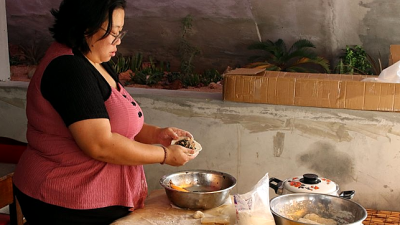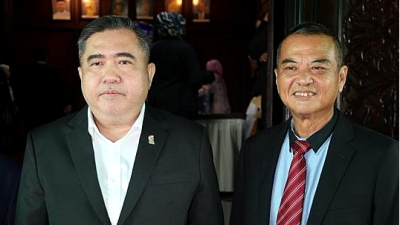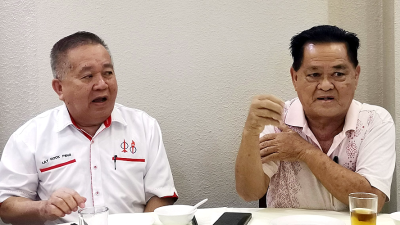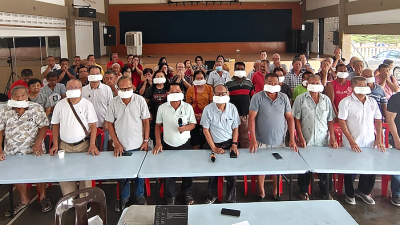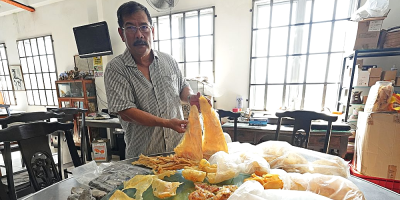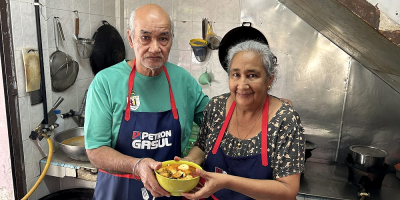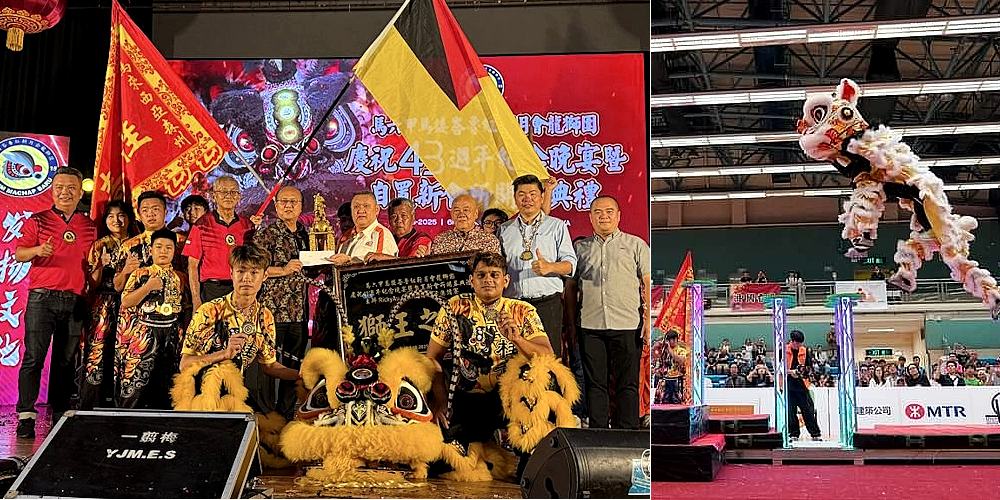
SEREMBAN: In Negeri Sembilan, there is a lion dance troupe that has quietly toiled for decades.
Starting humbly from a rural pig farm, they have brought traditional lion dance step-by-step onto the international stage.
They are the Malaysia Guiqing Negeri Sembilan Association Club, a living testament to transformation, promotion and modernization of lion dance culture in Malaysia.
Founded on September 9, 1999—a date symbolizing longevity—the association embodies the dream of its chief instructor Lew Sai Tet to make lion dance not merely a cultural performance, but a formalized sport that might one day appear on the Olympic stage.
Notably, in April this year, Lew—the driving force and soul of the club—was awarded the “Dragon and Lion King Leadership Award” at Malaysia’s first-ever Dragon and Lion Cultural Awards, for his 45 years of exceptional contribution towards promoting lion dance.
“Growing up in a village in Port Dickson, I was always fascinated by lion dance. Back then, I really had nothing,” said 57-year-old Lew.
Lew recalled that his journey began in a deserted pig farm in Kuala Sawah, where he started training a group of students and formed a lion dance troupe—truly from scratch.
Fortunately, a few friends offered small sponsorships to help him along the way.
“In the beginning, we had no funds, no equipment—only a heart determined to preserve our culture,” he said.
“It was indescribably tough.”
The training space was cramped, and when practicing high-pole routines, they often bumped into walls. Even worse, the place was infested with snakes.
“I still remember one time during a training session, there was a python coiled on the ceiling beam right above us. Everyone froze in shock—and when I realized, I ran for my life too!” he said.
Many trainees often stayed overnight in the pig farm after late practices, practically sleeping with snakes.
Located near a swamp, the place was often flooded during the rainy season. Conditions were harsh beyond imagination.
In the early years, besides the lack of resources, the team also had to face social prejudice.
“Many parents believed lion dance was linked to gangsterism and did not want their kids involved,” Lew said.
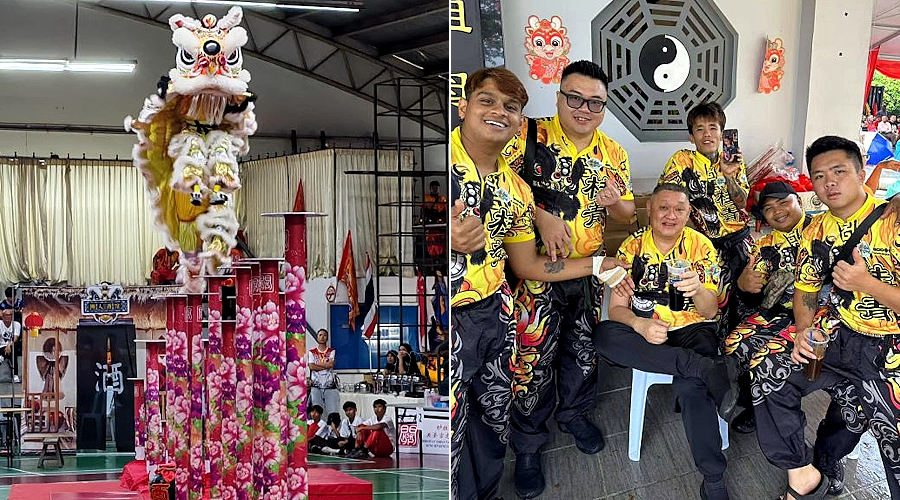
To change this mindset, he brought lion dance into schools, teaching students not only movements but also values—the eight virtues: filial piety, brotherhood, loyalty, trustworthiness, propriety, justice, integrity, and honor.
This persistence gradually earned the club recognition from the community.
Today, apart from competitions and performances, the club actively conducts free training at primary schools, including national primary schools, introducing lion dance to children of all races—breaking down cultural barriers and fostering true multicultural integration.
Lew admitted that the first decade was extremely hard. They had few invitations, no sponsors, and often had to perform door-to-door during Chinese New Year just to raise funds.
There was once their van was involved in an accident while transporting equipment during the festive season. In desperation, a Malay friend lent them a school bus, accepting only a small red packet as token of appreciation.
After spending over 10 years training in that old pig farm, on December 12, 2012, the team finally moved into their current clubhouse.
The members painted the walls and cleaned the place themselves, often sleeping on the floor.
Despite their financial struggles, they managed to build a strong foundation step-by step.
Today, Guiqing is a champion team on the international stage, their success forged through years of sweat, hardship and perseverance.
The team now has over 35 members aged between six and 40. Many of the six to seven dedicated coaches have been with Liew for over 20 years.
“Not everyone can join lion dance,” Liew emphasized.
“Beyond skill and stamina, character and discipline are the most important.
“Lion dance isn’t street entertainment—it’s a cultural expression and a reflection of attitude.”
Guiqing also takes pride in its integrity and consistency.
Their performance fees during Chinese New Year have remained the same for years—relying on reputation and trust.
Businesses are happy to book them even with tight schedules because they know that when Guiqing performs, quality is guaranteed, said Lew.
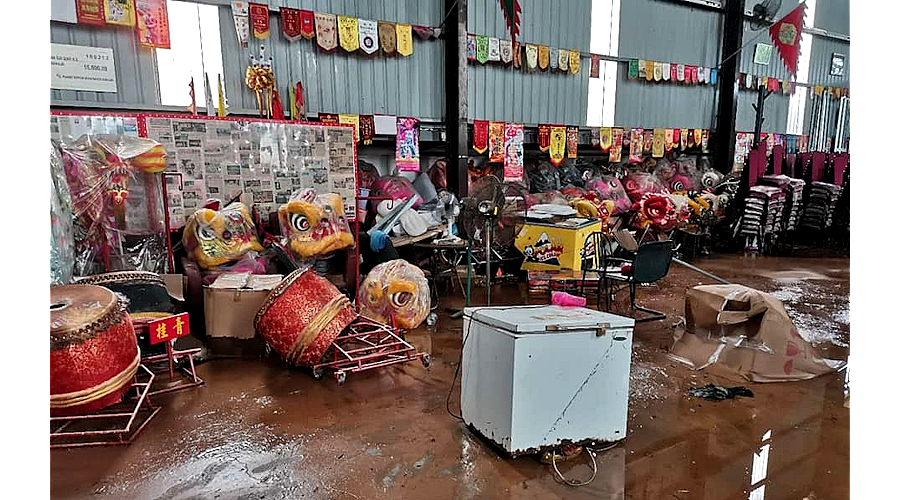
Recognized not only as a state cultural treasure but also a national lion dance brand today, Guiqing receives invitations from across Malaysia and abroad.
They have repeatedly won awards in local and international competitions, including outstanding results in the 2024 International Lion King Cup in Hong Kong.
But Lew’s vision goes beyond the Chinese community.
“If our culture remains confined to the Chinese circle, it won’t go far. We must make lion dance a recognized sport, one that reaches the world.”
To that end, he has spearheaded efforts to standardize lion dance, establishing the Dragon and Lion Sports Association to create proper rules, training systems, and international certifications—all with the dream of seeing lion dance enter the Olympic Games one day.
For 45 years, Lew has devoted nearly every Lunar New Year to lion dance.
“Only during the pandemic did I finally spend New Year with my family,” he said with a bittersweet smile.
In late 2020, a massive flood disaster struck their club, destroying all 22 lion heads imported from China.
The loss was devastating and some members even thought of giving up.
At their lowest point, Transport Minister Anthony Loke stepped in with aid and sponsorship, helping them rebuild.
“He lifted us up when we needed it most. I will never forget that,” said Lew.
Today, the Malaysia Guiqing Negeri Sembilan Association Club is no longer the unknown group once training in a pig farm.
They are multiple-time International Lion King Cup champions, pioneers of lion dance reforms, cultural educators who sow seeds in schools, and torchbearers of tradition and passion leading Malaysian lion dance to new heights.
“We’ve never relied on foreign funding—only on self-reliance and a team that shares the same dream,” Lew said.
He expressed deep gratitude to his committee members and teammates, whose hard work laid the foundation for what Guiqing is today.
“Lion dance is our culture, and our pride,” said Lew.
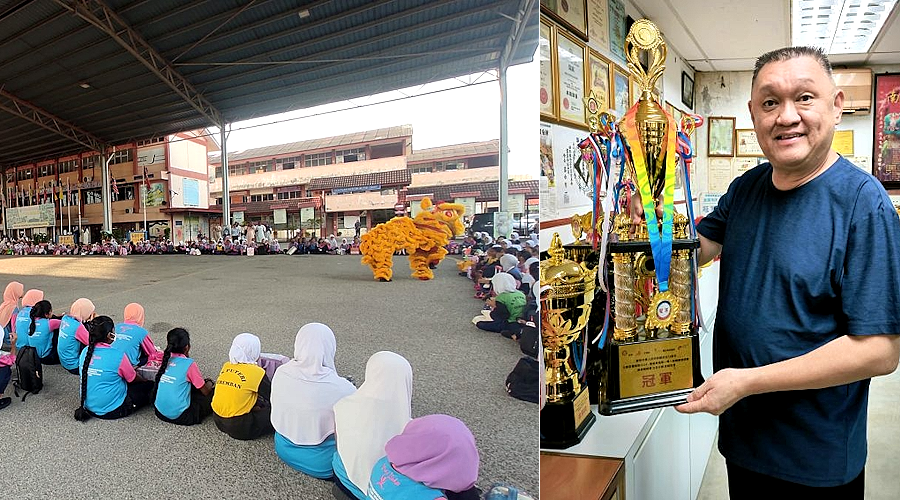
ADVERTISEMENT
ADVERTISEMENT






